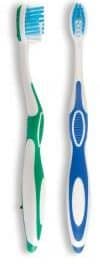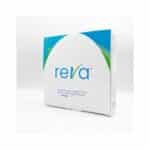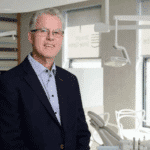 |
As the holder of one measly master’s degree, I am the academic black sheep of my family. My father and brother are PhDs and professors, and my mother collects MAs the way some people collect Hummel figurines.
All of this is to say that we Piehlers place great value on book learnin’, and even though I have spent many years toiling in the salt mines of commerce, when the August nights start to cool, I can’t help but get that “back-to-school” feeling. The summer may have been a sunny blur of cold drinks and invented sports, but now it’s time to buckle down to the real work of improving my mind.
As specialists who chose to spend the better part of a decade on their higher education, I think orthodontists can identify with this feeling. And to some degree, they have to, since CE is an ongoing part of the job. But according to my very, very unscientific survey, when it comes to increasing the range of their knowledge and skill, orthodontists are doing much more than just fulfilling requirements. The orthodontists I heard from are planning a panoply of educational ventures this autumn, and most of them are actually willing to travel for their CE. Of course, it helps that their destinations are places like Australia, Santa Barbara, Calif, and Austin, Tex. Popular CE topics include such mouthfuls as facial planning, implant anchorage, mandibular midline distraction, interdisciplinary dental facial aesthetics, and oral implantology. Another fact I noticed is that nearly half the orthodontists I queried were planning to teach as well as learn—for them and many of their peers, CE is a constant, two-way flow of information.
Now, a cynic would say that you can’t teach an old orthodontist new tricks, but ScienceDaily.com recently featured an article titled “Adult Brain Can Change Within Seconds,” which challenged the assumption that the brain becomes less receptive over time. One of the study’s authors was quoted as saying, “Our study shows the stunning ability of the brain to adapt to moment-to-moment changes in experience even in adulthood.”
So it’s never too late to learn. Maybe I can still get that PhD.
Christopher Piehler
/p>








